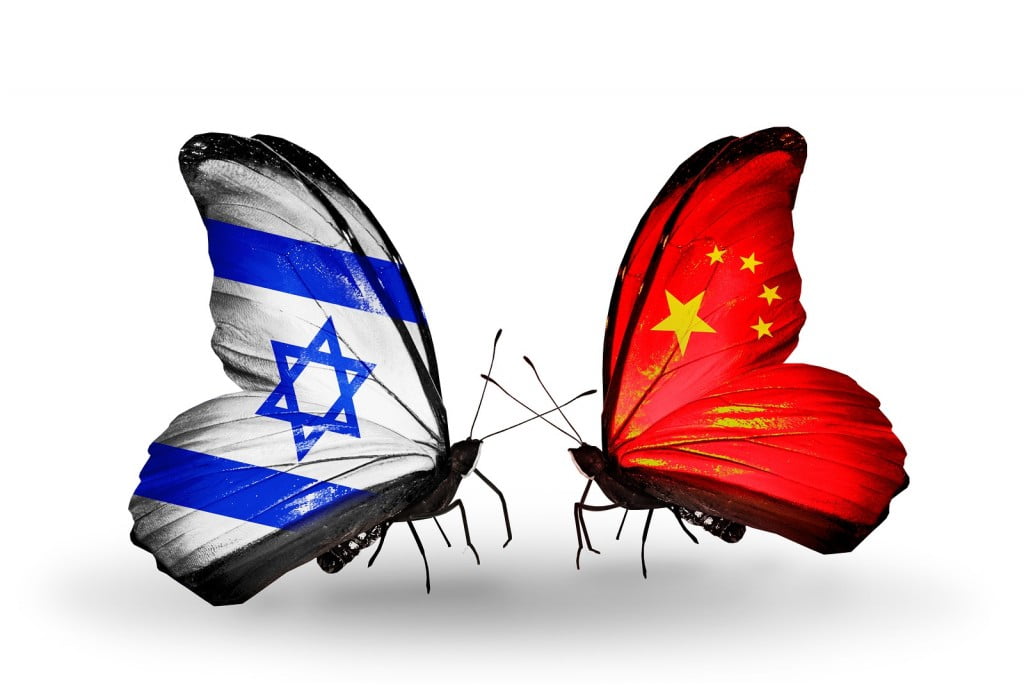China and Israel established diplomatic relations a mere 20 years ago, but the countries are steadily drawing closer over a common vision – expanding the innovation economy. Israel and China already have in excess of $10 billion in trade since the start of 2015, with China recently asking Israel to join the Asia Infrastructure bank as a founding member, suggesting that Israel may become a major economic ally.
The last year has seen a real surge in investment funds and private investors coming to Israel from the Land of the Dragon, in part due to the easy access to the Middle Eastern country’s markets and the riveting can-do attitude of local entrepreneurs that the Chinese say they can identify with.
The upside of the Silicon Wadi
It is Israel’s open, innovative and risk-taking approach to tech that initially attracted notable Chinese billionaire Li Ka-Shing to invest in ten Israeli companies, including Waze, in 2012 alone. Through his fund Horzions Ventures, Li set the stage for tech relations with Israel, showing his country’s business elite that it was financially sound and even necessary for the future of the Chinese economy to invest in emerging technologies.
According to Gigi Levi, one Israel’s top angel investors, China may even “look up” to Israel for its Startup Nation title. “Israel is a small nation that has managed to become a high-tech superpower,” he tells NoCamels, “This is something that is very appealing to the Chinese business person.”
“I think that the Israeli ecosystem offers unique opportunities because it is in a more competitive position than ever before, and due to the relative feeling that it’s easy to work with Israeli companies,” Levy asserts. In fact, Levy believes that because Americans themselves view Chinese investment as a risky endeavor (American investment in China decreased significantly between 2013-2014), Chinese investors are more inclined to turn towards Israeli startups as an outlet for their own funds.
SEE ALSO: Li Ka-Sing: How The Chinese Billionaire Became The Startup Nation’s Biggest Supporter
Omri Shamir, CEO and co-founder of Startup East, an accelerator and microfund that focuses on Asian markets, thinks that Chinese interest in Israel has a lot to do with the size of the ecosystem, which is 46 percent smaller than the US market. “I think that if you compare Israel to Silicon Valley, Asian investors and companies see Israeli startups as more accessible. Israel has a small local market, which leads Israeli startups to seek out new markets all the time.”
China: a global market waiting to be disrupted
With China’s Internet industry continuously on the rise and its increasing privatization (despite a history of heavy government-regulation), foreign Internet companies are eager to enter the market and reap the benefits. According to assessments made by the China Internet Network Information Center, in the world’s most populous country, 86 percent of the population uses mobile phones, which accounts for a whopping 649 million people.
Because mobile and Internet is used en masse in China, Chinese Internet giants like Baidu and Alibaba have a lot of cash to invest in innovative business solutions that will keep them on top of their game. Often, these solutions are found in Israel. Shortly after Alibaba’s IPO in September, the company announced that it would invest an unspecified amount in Visualead, the Israeli startup that creates “designer” QR codes. Baidu followed suit with an investment in Israeli startup Pixellot and recently led a $5 million investment round in Israeli music education startup Tonara. Showing that the Chinese don’t just invest in tech, Bright Food acquired Israel’s agricultural produce company Tnuva for $1 billion, a deal that was almost first-of-its-kind for China, and a big stepping stone for a homegrown Israeli company looking to expand its market.
Shamir says that while the Chinese look to Israel for disruptive, cutting-edge technology, the relationship doesn’t just go one way. According to him, it’s not just about Chinese investment in Israeli companies, but equally about establishing Israeli startups in China. “Israeli companies also see important opportunities in the East, and the meeting point of these two approaches is what produces such a successful partnership.”
Cementing ties with local business
Sign up for our free weekly newsletter
SubscribeBut Zvi Shlago of Synergy Funds, an investment initiative to establish Israeli businesses in China, seems less ebullient about Israeli attempts to gain a foothold in one of the world’s most challenging, and until recently, impenetrable markets. “Israeli companies struggle to develop themselves within China. They struggle to understand the Chinese market, and then there is still often opposition to cooperation and investment from the Chinese side. These two factors have limited the degree of cooperation and the business potential up until this point.”
Despite the fact that Chinese investors are increasingly interested in Israeli agritech, biotech, IT and cleantech solutions (Tsing Capital managing partner Don Ye recently stated, “Cleantech is probably the most important segment in cooperation between Israel and China”), Israeli startups often still struggle to establish a foothold in China. Shlago believes this is due to a plain “lack of history” between the two nations and aspects of the Chinese system that cause Western countries, namely the United States and Europe, to avoid establishing local businesses.
Another big issue facing any technology company entering China is Intellectual Property; China has a long history of openly disregarding patents and other IP certifications, a trend that both Shlago and Shamir believe is on the decline: “There are a lot of Israeli companies that are afraid of IP when it comes to Chinese companies, though the Chinese government, courts and companies themselves have made a number of efforts in the last two to three years to control this issue and to decrease IP crime,” says Shamir.
SEE ALSO: Israeli Technology To Bring Internet To Rural China
Startup East and Synergy Fund hope to mend some of the differences in the business culture by giving startups a local base. For Synergy it means establishing a Chinese subsidiary so that Israeli companies can begin growing within China, as opposed to places like the United States. According to Shlago, “The effect of this is that in one or two years, there will be a strategic body of Israeli companies in China that have developed there and will see continued investment. For Israelis, they have local management in China that can take care of any professional issues, and for Chinese, the company is a now a local source of pride.” Shlago in particular believes that by bringing Israeli tech to China, and not just Chinese investors to Israel, Israel can cement its place in a growing market that will soon be subject to intense international competition.
China’s “failure” taboo
With Chinese admiration for Israel’s Startup Nation at its peak, the question remains why China has not yet fostered a real innovation economy of its own. Shamir thinks that the hesitancy to adopt a startup culture has a lot to do with the very formal business culture in Asia, “Until now, there was little or no need for innovation in these countries because the big focus for the older generation was to get a good job in a big company. The notion of startups and innovating only began to take off four to five years ago when a lot of countries realized that you need a creative economy to shake up conglomerates and to keep the business environment alive.”
In addition, Shamir believes the concept of “failure” is still highly problematic in Asian countries, as opposed to the risk-taking Israeli mindset. “The idea of failure is surrounded by big taboo,” says Shamir. Gigi Levy, in turn, believes this is what makes the Israeli “chutzpah” so attractive to “new-age” Chinese companies like Alibaba and Baidu.
Academic and political cooperation
With the increasing economic cooperation between the two countries, other sectors are following suit. Indeed, China is launching an increasing number of partnerships with Israeli universities, like Tel Aviv University and Tsinghua University’s $300 million joint research center; as well as a $130 million donation to the Technion – Israel’s Institute of Technology, and a program devoted entirely to teaching the Israeli business culture at Beijing University.
Politicians are also hastening the pace of visits to cement economic ties, with former Israeli Economy Minister Naftaly Bennett recently visiting China to launch the Israeli Business Center in Shanghai, an initiative that goes hand-in-hand with the China-Israel Joint Committee on Innovation Cooperation, a three-year action plan to strengthen innovation cooperation.
Though China still has a long way to go until it competes with Israel and the United States for a top spot on the Global Innovation Index, Shamir believes that it’s only a matter of time, “As the younger generation becomes global and strives to be different, it will be easier to foster an innovation economy.” When it comes down to it, a country the size of New Jersey may actually have more to teach the world’s largest country about the secrets of fostering an innovation economy than the US herself.
Photos: alexoxela
Related posts

Editors’ & Readers’ Choice: 10 Favorite NoCamels Articles

Forward Facing: What Does The Future Hold For Israeli High-Tech?

Impact Innovation: Israeli Startups That Could Shape Our Future








Facebook comments